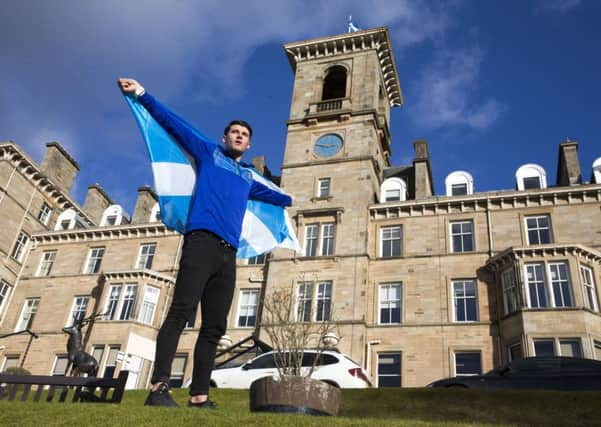Go-it-alone approach paying off for Guy Learmonth


The 800 metre specialist is currently at a Team Scotland training camp in Australia, attempting to hone his form ahead of the Commonwealth Games, which get underway in Gold Coast next week. But whatever he achieves will be in spite of UK Athletics and not thanks to the governing body, who he says have become too bogged down in trying to eke that extra one per cent from competitors that they often forget the other 99 per cent needed to make it to the top,
The 25-year-old was overlooked for UK Athletics’ world-class performance squad last year and, while he doesn’t have lottery funding, he does not mourn the fact he is not part of a system he believes has become too blinkered. “That’s a big, big problem. Lay the foundations first and then build on it,” he said. “I do believe the one per cent stuff helps. But in the group I was in, everyone was focusing on the one per cents and the one per cent stuff was taking up six hours of your day. What about the other 99 per cent? What about the running? We were doing three hours of drills and we hadn’t even done our morning run yet.
Advertisement
Hide AdAdvertisement
Hide Ad“For an endurance athlete, you should be out the door first, do your run and then worry about the marginal gains.
“Obviously all these things are beneficial. But you still need the core of what you do. Marginal gains are supposed to be marginal but people would get obsessed with the science stuff. Running on treadmills and getting on the VO2 max.
“An 800m runner would get on the treadmill and say: “Oh, this test says I’m going to break the world marathon record” but I would be like: ‘No, you’re not. Because you’re an 800m runner who runs 1.50! You’re not going to break the marathon world record.’ But they get obsessed with all those tests, the fine tuning. I will happily go on the treadmill and get hooked up, look like Bane from Batman, when I’ve run 1.43. Because getting from 1.45 to 1.43 is hard – but getting below that is incredibly hard. That’s when the science comes into it, not when you’re a 1.50 athlete for the 800m. That’s when you just go and run. People forget that.”
But while the financial impact of being ousted from the programme is a hardship, and one he believes may be fuelled by a degree of awkwardness on the part of the selectors, the switch in circumstances has not hindered his progress on the track and he heads into his second Commonwealth Games in the best shape of his career.
“I was never going to get funding,” said the Berwick-based athlete. “Simple as that. Because I was part of a system – and I failed under that system. For the year-and-a-half that I was under it, I didn’t perform. I didn’t run quicker than 1.47. I got injured. They threw everything at me.
“But then I moved home, did everything in the sticks. It’s not exaggeration. I had no track, no gym. Me and my dad converted his garage into a gym with some MMA mats, a speedball, a spinning bike, so we didn’t have to pay four or five quid a day to use the local gyms and we do everything off natural training resources. No medical support.”
The go-it-alone approach, with roadside running and garage gym work, has paid off though.
“I came out and ran 1.45.1. And performed above anyone’s expectations in 2017,” he added. “So I’ve had everything and not performed, then done it off nothing and performed at a very, very high level. I feel like that has embarrassed that system. That’s my belief. And I left the coach who is part of the selection panel. So…
Advertisement
Hide AdAdvertisement
Hide Ad“The English boys will be at the Commonwealths. They’re there. They’re on funding. I’ll just have to beat them again, won’t I?”
Focused on how to get the best from himself rather than obsessing about how money could be better spent, he does believe that as every athlete is different, there should be more scope for athletes to explore whatever training methods suit them and still gain backing from the sport’s hierarchy.
“I think it’s about how the money is distributed, I guess. Because obviously it works for a lot of the science. But they are a bit obsessed with it,” he said.
“There are a lot of coaches who run round with their iPads, film every rep and break it down. Some of the sprinters I’ve seen will do a 30-metre rep, then sit and analyse it for 20 minutes – and only then do another rep. I’m halfway through my session by the time they’ve done one rep.
“There is a time and a place. But the coaches are getting carried away with all this technology. You need to remember the fundamentals, which is just hardcore training.”